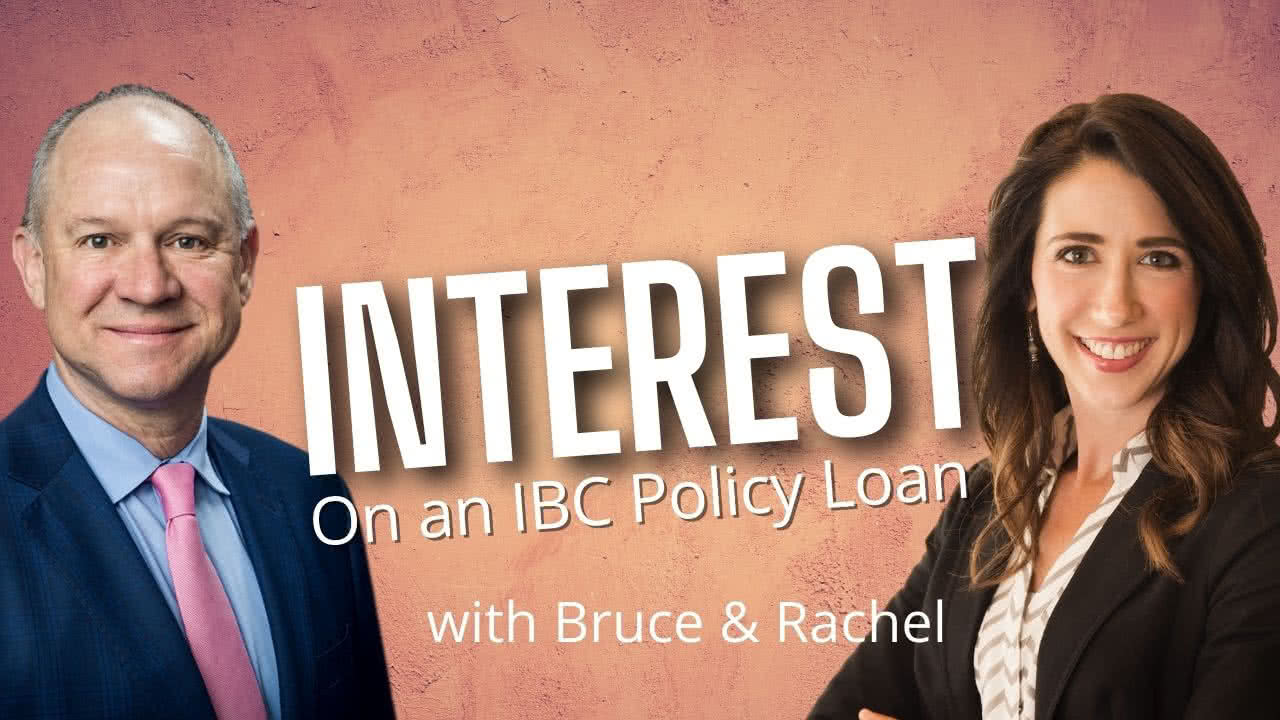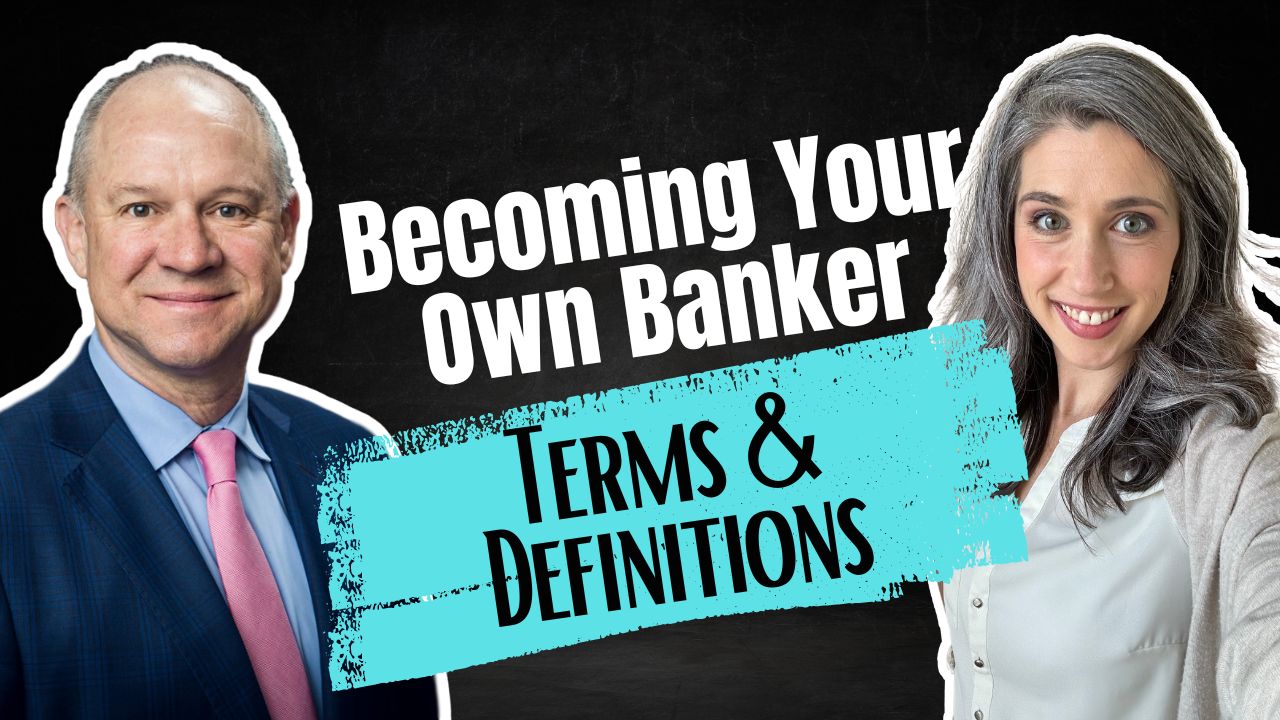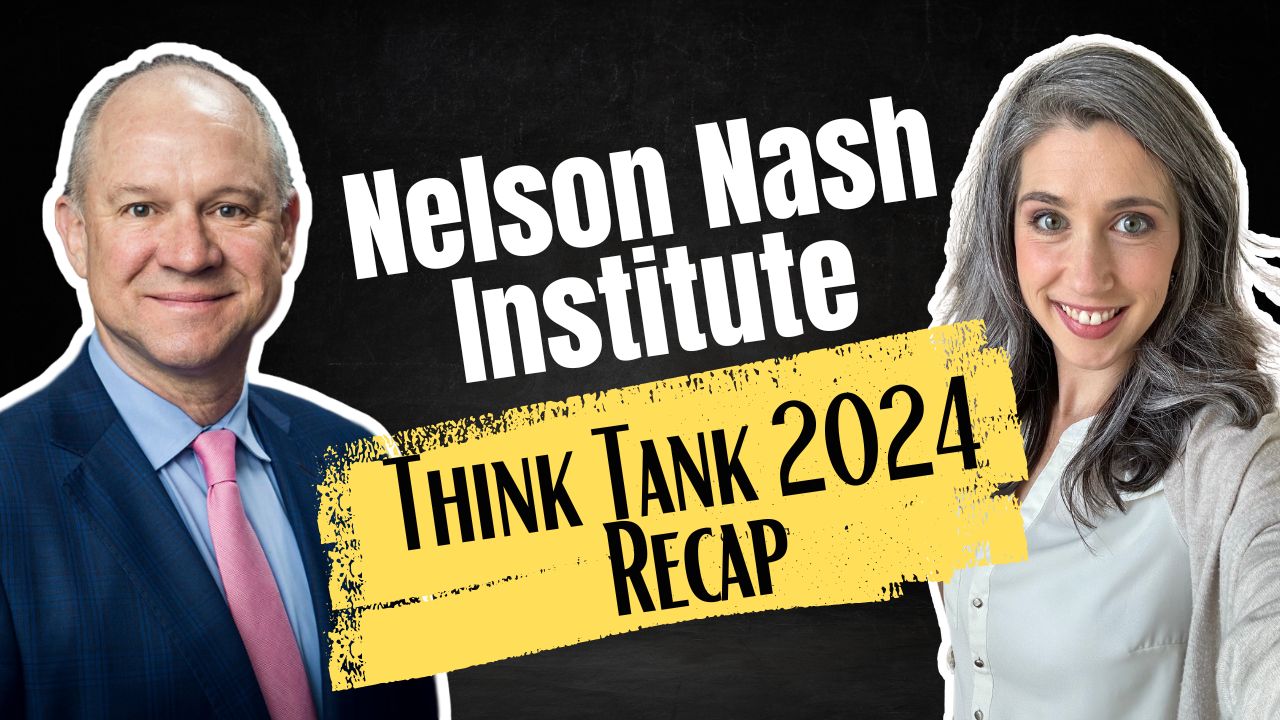
How Infinite Banking Loan Interest Works
Want to use your Infinite Banking policy, but wish you understand the nuts and bolts of how Infinite Banking loan interest works first? Today, we’re answering a question from our wonderful community of listeners:
What’s the policy loan if I wanted to borrow 1K? Are there any interest rates?—Riley Nelson
So if you want to learn exactly how interest works on life insurance policy loans… tune in now!
Podcast: Play in new window | Download (Duration: 28:38 — 32.8MB)
Subscribe: Apple Podcasts | Spotify | Android | Pandora | RSS | More
Table of contents
What is IBC?
A friend of ours, James Neathery, often says, “If you understand the concepts, the details don’t matter, and if you don’t understand the concepts, then the details don’t matter.”
Ultimately, what he’s saying is that you must ultimately understand the big picture of how and why IBC (Infinite Banking Concept) does what it does. Without that conceptual understanding, the rest doesn’t matter. And so, we’re first going to look at infinite banking or privatized banking on a conceptual level, so that we can get into the weeds.
Infinite banking is an alternative banking position. As we know, banks pay you interest, and they charge you interest. Life insurance companies work the same way. If you have a whole life insurance policy, the insurance carrier will pay you interest and charge you interest.
The power of “banking” with a life insurance company is in the rates, the leverage, and the level of control. To access the cash value of your life insurance, you can take a policy loan. The benefits of a private system is that you do not need permission or approval.
The Power of Leverage
The reason that IBC works in a way that regular banking does not is because of the power of leverage. The rate at which insurance companies pay interest is often far greater than what the banks offer, as well as dividends. This allows for greater accumulation. Then, you can leverage that money to make it do more jobs.
This could mean taking a policy loan at 5% and investing it in real estate at an even better rate. You can then put the monthly cash flow towards the loan repayment and give your money a better rate of return in the long run. And because you’ve leveraged the insurance company’s money (using your cash value as collateral), your policy continues to accumulate interest at its maximum compounding potential.
The benefit is that you’re not JUST putting your money in a vehicle with better safety, liquidity and growth. You also have an ASSET that allows you to accumulate more assets with uninterrupted compound interest.
IBC is not magic. However, it’s a strategy you can use to make your banking more efficient and work more in your favor.
Do Life Insurance Companies Charge Interest on Policy Loans?
Yes, the life insurance companies DO charge you interest. This is because you’re borrowing from the insurance company instead of taking money directly from your cash value. This means that your entire cash value can continue to compound uninterrupted.
Instead, your cash value acts as collateral. This means that your death benefit will be reduced until the loan is paid back. You aren’t borrowing your own money and paying yourself interest, which is a common misconception.
Why Compounding Interest Matters
You might wonder WHY you would want to pay interest at all, when you could just withdraw from a regular savings account. The answer is in the compounding. When you withdraw money from a bank account, there’s less money to earn interest on. As we all know, interest accumulates better on larger sums of money—1% of $1,000 is only ten dollars. On the other hand, 1% of $10,000 is a hundred dollars. At the higher balance, not only are you earning more money—you’re also earning money on THAT money. Which means next year, you’ll earn $110 of interest, and it will continue to compound and become more efficient.
If, however, you withdraw $10,000 the next year, leaving $100 in the bank, you’re only earning one dollar. You’ve minimized the velocity of your interest.
A policy loan fixes this problem. So although you may be paying interest, you get to leave your $10,100 in the policy to continue accumulating. And, you’re going to be earning interest at a better rate than the bank’s 1%.
Fixed vs. Variable Interest
To put it simply, a fixed rate is an interest rate that won’t change over the repayment of your loan. A variable interest rate, on the other hand, will change. Though the insurance companies will only change this rate once a year.
The difference is that at a fixed rate, the insurance company will often pay a different rate for collateralized cash value. This is called Direct Recognition. When you pay your premium, a part of that premium goes toward your cash value, which grows with interest and dividends. The interest is guaranteed as a part of the insurance contract, while the dividends are not (but are highly likely).
The portion of cash value borrowed against can either be directly recognized, and earn a different rate than the non-collateralized cash value, or non-directly recognized. Non-direct means that the company will pay the same rate on your whole cash value whether you have a policy loan or not.
This ultimately boils down to the quote, “There are no deals in the insurance industry.” Everything balances out because insurance is first and foremost an actuarial product. It’s meant to insure your life, and these trade-offs strengthen the company’s ability to meet its contractual guarantees.
The bottom line, however, is that these factors often balance each other out. Meaning that the difference between Direct and Non-Direct recognition companies is extremely slim. You can read more about the differences here.
The Nuances of Variable Interest Rates
You might think variable interest sounds scary, though it’s not as bad as it may seem. The first point to be aware of is how often an insurance company changes its rate. Insurance companies don’t change their rates frequently. They are able to change them once per year, and just because they can does not mean that they always will.
It’s also important to know why they change their rates. Two factors affect the interest rate that insurance companies charge. The first is bond yields—as they go up or down, the insurance companies will adjust accordingly. The second factor is the Federal Reserve rates.
Insurance companies use these two rates as a reference for their own rates, rather than a blueprint. Which means they won’t always be the same rates, however they will often move in the same direction (up or down).
The positive is that the interest you earn also reflects these rates. So historically, when interest goes up on loans, it has also increased the dividend rates.
How Companies Charge Interest
Another key difference between insurance companies is HOW they charge interest. Some companies charge the interest up front, and then credit back a portion of the pro-rate interest if you pay it off early. Other companies charge the interest at the end, letting it accrue over the life of the loan.
The advantage of the latter is that every payment you make from day one goes to principal, and is immediately available to you to use again. Meaning if you needed to, you could take another policy loan for another opportunity or emergency.
This is important as you think about how you want to use your policy.
Book A Strategy Call
Do you want to coordinate your finances so that everything works together to improve your life today, accelerate time and money freedom, and leave the greatest legacy? We can help!
Book an Introductory Call with our team today https://themoneyadvantage.com/calendar/, and find out how Privatized Banking, alternative investments, or cash flow strategies can help you accomplish your goals better and faster.
That being said, if you want to find out more about how Privatized Banking gives you the most safety, liquidity, and growth … plus boosts your investment returns, and guarantees a legacy, go to https://privatizedbankingsecrets.com/freeguide to learn more.
Becoming Your Own Banker, Part 28: Infinite Banking Definitions
Have you ever felt like you’re on a financial hamster wheel, constantly spinning but never gaining traction? Join us as we unpack the epilogue and glossary of Nelson Nash’s “Becoming Your Own Banker.” It’s a journey through the intricate philosophy of IBC, as we cover Infinite Banking definitions that shows how effective money management can…
Read MoreNelson Nash’s Legacy: Think Tank 2024 Recap
Embark on a transformative financial odyssey with us as we reflect on our profound experiences at the Nelson Nash Think Tank for 2024. Unlock the doors to personal economic empowerment with the Infinite Banking Concept (IBC), a brainchild of the late Nelson Nash that revolutionizes the use of dividend-paying whole life insurance. We shed light…
Read More


